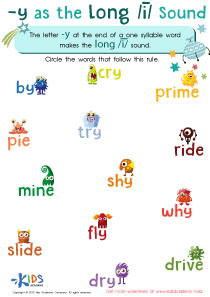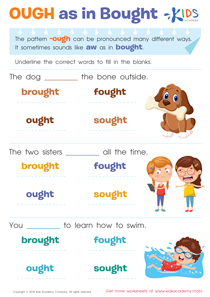Phonics Skills Normal Grade 2 Vowel Digraphs Worksheets
3 filtered results
-
From - To
Enhance your Grade 2 classroom experience with our engaging Phonics Skills Vowel Digraphs Worksheets, designed specifically for young learners. These worksheets focus on helping students identify and practice vowel digraphs—special combinations of vowels that create unique sounds. Tailored for second graders, the activities promote phonetic awareness through interactive exercises, word recognition, and writing practice. Teachers will find these resources invaluable for reinforcing key phonics concepts while keeping students motivated. Transcend traditional learning with fun, colorful worksheets that make mastering vowel digraphs enjoyable. Explore our comprehensive collection to support literacy development in your class today!
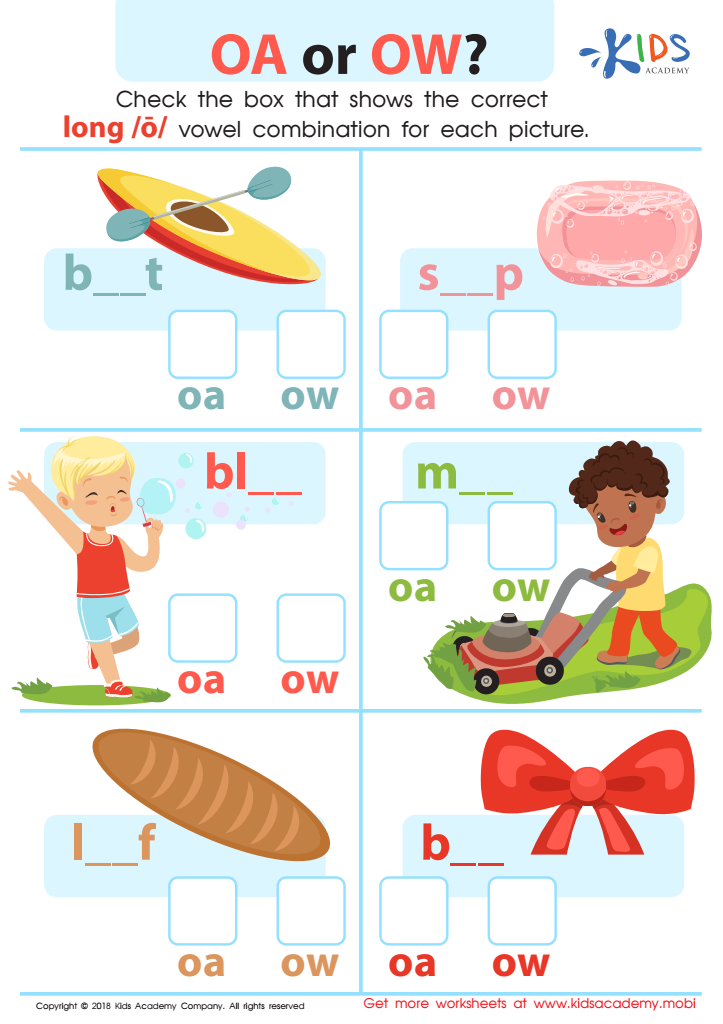

Reading: OA or OW Worksheet
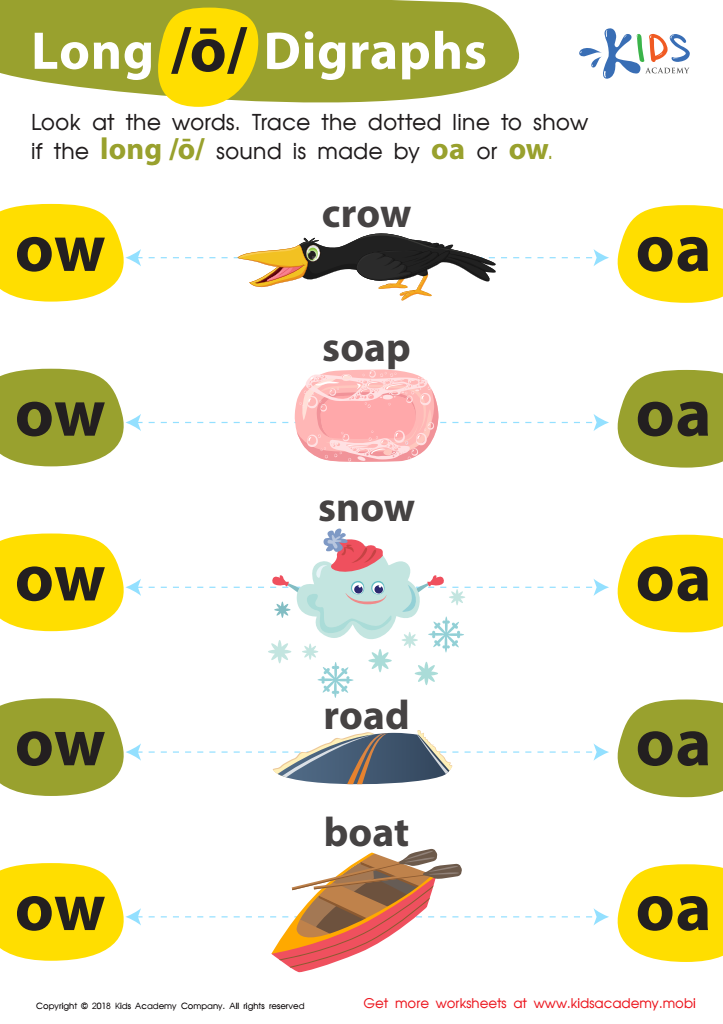

Reading: Long O Digraphs Worksheet
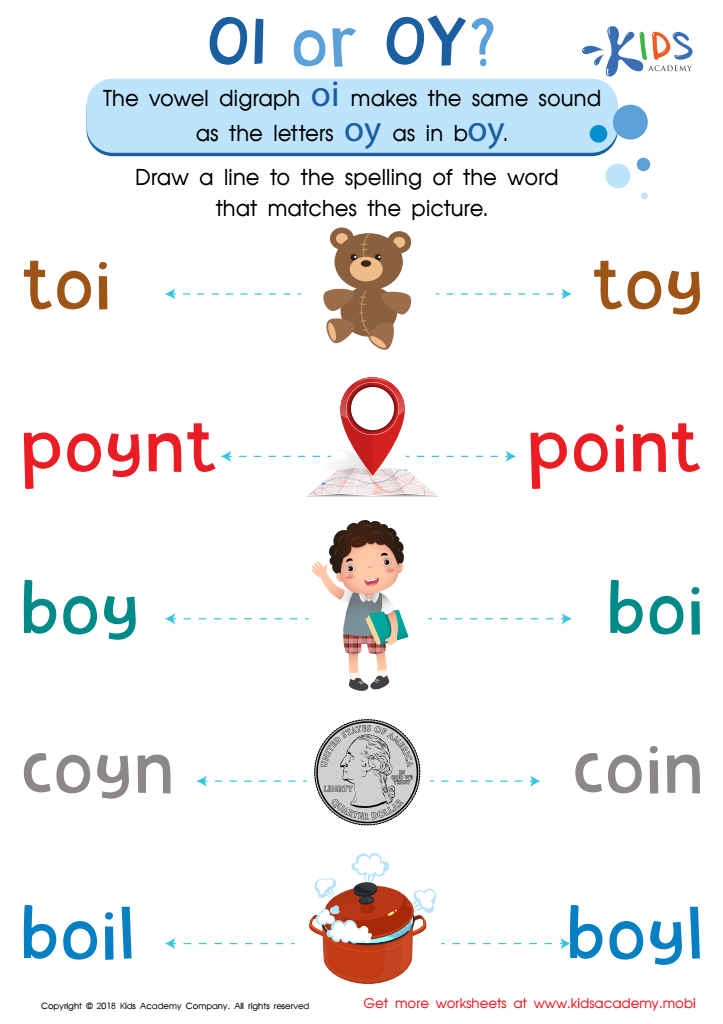

Reading: OI and OY Worksheet
Phonics skills, particularly vowel digraphs, are crucial for second-grade students as they lay the foundation for reading proficiency. Vowel digraphs, where two vowels come together to create a single sound (like "ea" in "team" or "ai" in "rain"), play an essential role in helping young readers decode words more effectively. When parents and teachers prioritize these skills, they enhance children's ability to recognize and read higher-level texts, improving overall literacy.
Understanding vowel digraphs not only accelerates reading fluency but also fosters confidence in children as they develop their comprehension skills. As students learn to identify these patterns, they become more adept at tackling unfamiliar words, thereby cultivating a love for reading. Furthermore, a solid grasp of phonics supports better spelling and writing skills, which are critical components of literacy.
Investing in phonics instruction during the vital second-grade year supports lifelong learning. By effectively teaching vowel digraphs, educators and families can help mitigate reading difficulties and promote academic success. Additionally, strong literacy skills correlate with positive social-emotional development, leading to improved self-esteem and enthusiasm for school. In essence, focusing on phonics is fundamental not just for reading, but for nurturing inquisitive, confident learners.
 Assign to My Students
Assign to My Students








